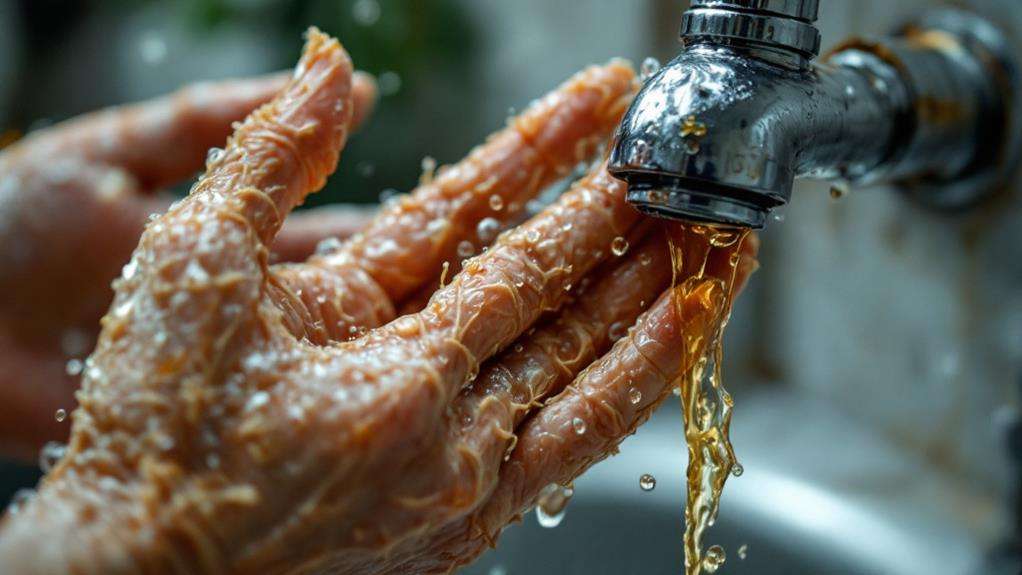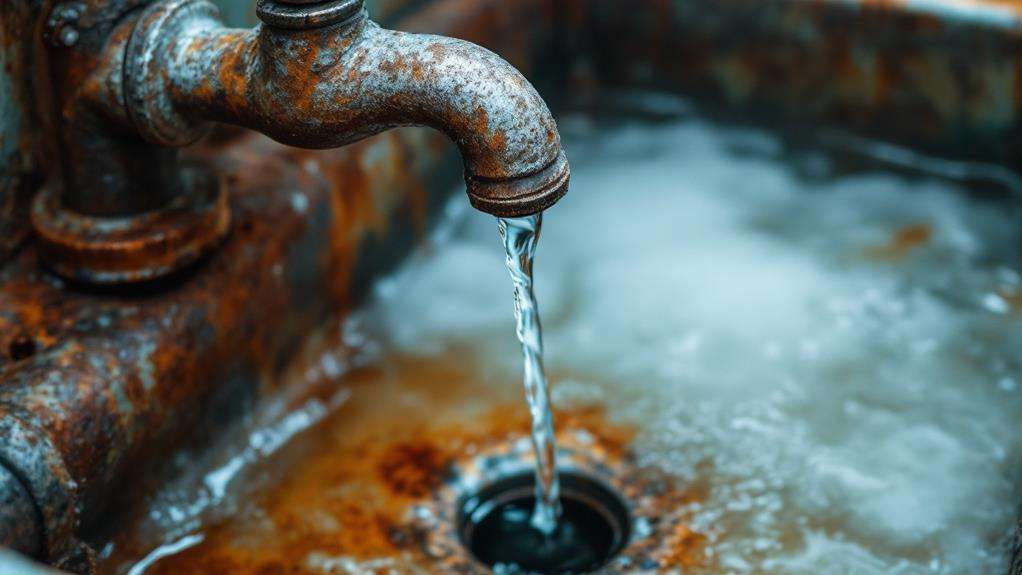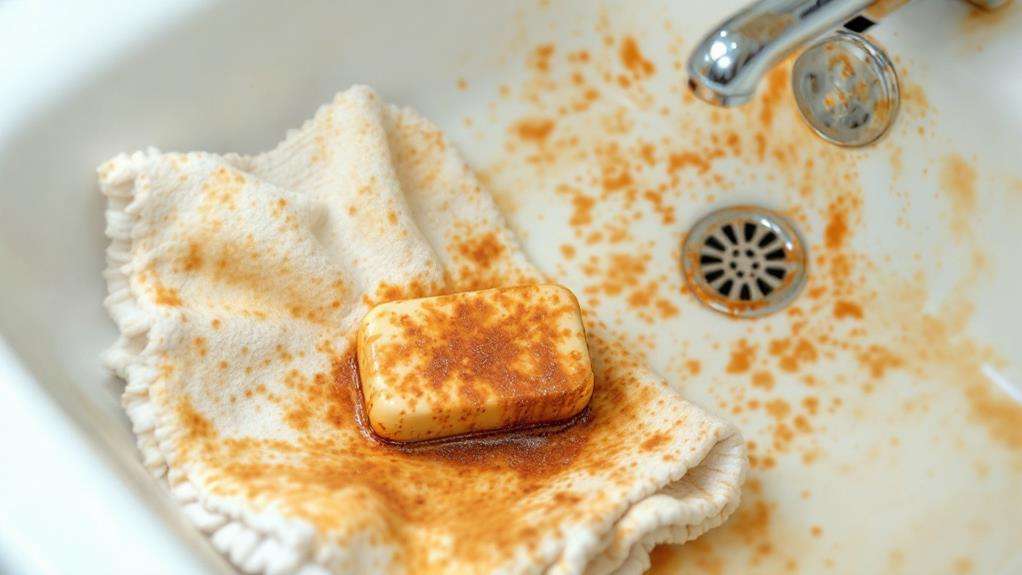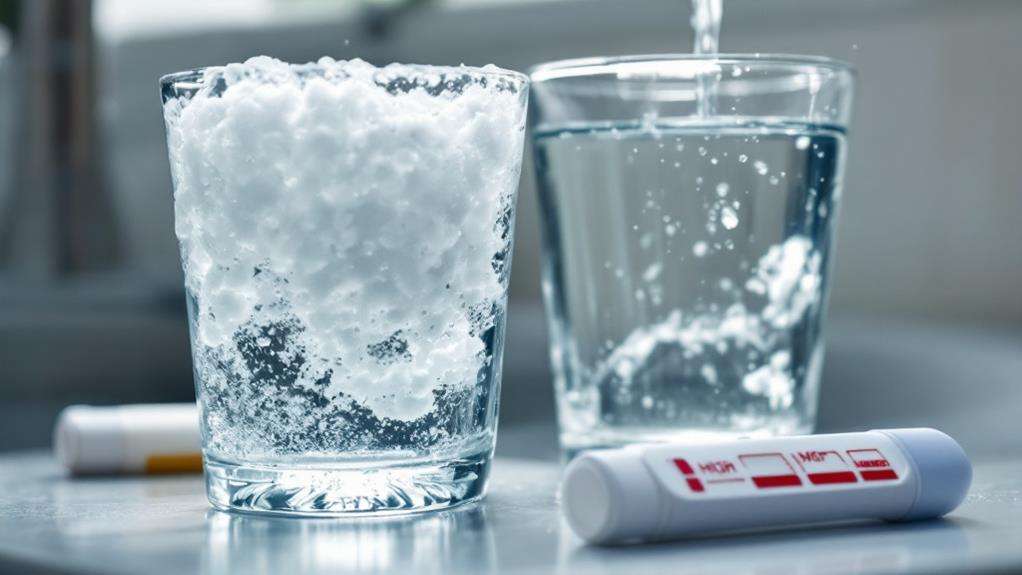Does Your Home Need a Water Filter? Signs to Look For
If you're unsure about your home's water quality, several signs can indicate the need for a filter. Unpleasant taste or odor, cloudy or discolored water, and dry skin and hair after showering are common red flags. Look out for limescale buildup on fixtures, frequent plumbing issues, and unexplained health concerns. Stained household items and a poor water quality report can also suggest contaminants. If you notice any of these issues, it's worth investigating further. A water filter can improve your water's taste, protect your health, and extend the life of your appliances. Plunge deeper to uncover how to identify and address specific water quality problems in your home.
Unpleasant Taste or Odor
An unpleasant taste or odor in your tap water is often the first sign that you might need a water filter. If you've noticed that your water tastes bad or smells off, it's time to investigate further. A metallic or bitter taste could indicate high mineral content, which is common in hard water. Chlorine treatment, while necessary for disinfection, can also lead to a noticeable chemical taste and odor in the water that comes from your tap.
When your water smells unpleasant, it's a clear signal that you should examine its composition more closely. To identify the specific contaminants that are causing the issue, you'll need to understand the root causes of the unpleasant taste or odor. Start by obtaining your home's water quality report, which can provide key insights into the mineral content and potential impurities present. Once you've pinpointed the source of the problem, you can select an appropriate filtration system to address your specific water quality concerns. Remember, different taste and odor issues require different solutions, so it's essential to identify the exact impurities before investing in a filter.
Cloudy or Discolored Water
Clarity in your drinking water is more than just a visual preference; it's a key indicator of quality. If you've noticed cloudy or discolored water coming from your taps, it's time to pay attention. This visual cue often signals the presence of suspended particles, sediment, or dissolved minerals in your water supply.
While cloudiness might seem like a mere aesthetic issue, it actually points to potential water quality problems that require addressing. To guarantee your home's water is crystal-clear and free of impurities, you'll need to understand the root causes of the cloudiness. This knowledge will help you select the right water filtration system for your needs.
Various filtration options are available to tackle cloudy or discolored water. A sediment filter can effectively remove larger particles, while reverse osmosis systems can address a wide range of contaminants. For a more targeted approach, you might consider a sink water filter designed specifically to address cloudiness issues.
Dry Skin and Hair

Struggling with persistent dry skin and brittle hair? The culprit might be lurking in your plumbing systems. Contaminated water can wreak havoc on your skin and hair, leaving them feeling constantly dry and uncomfortable. Water contaminants like chlorine and excess minerals are often the root cause of these issues, especially if you're already prone to skin ailments.
If you've noticed that your skin and hair remain dry despite your best efforts, it's time to ponder the quality of your home's water. A water filter system can be a transformative solution, addressing these contamination issues and improving the condition of your skin and hair. By installing a filtration system, you'll ensure that clean water flows through your taps, reducing the negative health effects of contaminated water.
Don't ignore these signs – they could be indicators of a larger problem with your water systems. Testing your home's water quality is an essential step in determining whether you need a water filter. By taking action to enhance your water quality, you'll not only improve the health of your skin and hair but also safeguard your overall well-being.
Limescale Buildup
While dry skin and hair can be telltale signs of water issues, another visible indicator might be lurking on your faucets and showerheads. If you've noticed a white, crusty substance building up on your plumbing fixtures, you're likely dealing with limescale. This chalky deposit is a clear sign of hard water in your home, indicating a high concentration of minerals in your water supply.
Limescale buildup isn't just unsightly; it can also damage your plumbing system and appliances over time. More importantly, it suggests the presence of problematic contaminants in your tap water, which may affect its quality and taste. To address this issue and safeguard clean drinking water, you'll need to contemplate installing a water softener or filtration system.
Before making any decisions, it's wise to have your water tested to determine the exact minerals causing the problem. This will help you choose the most effective solution for your specific needs. By taking action against limescale buildup, you'll not only protect your home's plumbing but also improve the overall quality of your water supply.
Frequent Plumbing Issues

If you're constantly dealing with clogged pipes or slow drains, your home's water quality might be the culprit. Frequent plumbing issues are often signs that your water system needs attention. Hard water, sediment, and mineral buildup can wreak havoc on your pipes, leading to recurring problems that can be both frustrating and costly.
Pay attention to other signs like decreased water pressure, strange noises in your plumbing, or discolored water from your tap. These issues may indicate that contaminants are affecting your water supply and causing damage to your pipes. Older homes built with outdated plumbing materials are particularly susceptible to these problems.
Installing water filters can help mitigate these issues. A whole-house filtration system or even a simple sink filter can greatly improve your water quality and protect your plumbing. Water purification systems remove harmful particles and minerals, reducing the risk of clogs and corrosion. By investing in filtered water, you'll not only enhance your drinking water but also extend the life of your pipes and appliances. Consider having your water tested to determine the best filtration solution for your home's specific needs.
Unexplained Health Concerns
Experiencing unexplained health concerns in your household? Your home's tap water might be the culprit. While water leaves your treatment facility clean, it can pick up harmful contaminants on its way to your home. These contaminants may not always be obvious, lacking telltale signs like a rotten eggs smell from hydrogen sulfide.
If you're noticing frequent colds, flu-like symptoms, or unexplained nausea among family members, it's time to evaluate your water quality. Some water contaminants can cause chronic health issues that aren't immediately apparent. Even if your water looks, smells, and tastes fine, it may still contain invisible threats to your health.
When unexplained illnesses persist, investigating your home water quality should be a priority. Professional testing can reveal hidden contaminants that might be affecting your family's well-being. If results show cause for concern, installing a water filtration system could be the solution. By addressing water quality, you may resolve these mysterious health problems and make your home's tap water safe for everyone. Don't ignore these signs your home needs a water filter – your family's health could depend on it.
Stained Household Items

Your household items may be telling you something about your water quality. If you've noticed persistent stains on your dishes, clothes, or surfaces after washing, it's time to ponder. These marks aren't just unsightly; they're indicators of potential water contaminants.
Stains can appear due to high levels of minerals or chemicals in your water supply. Pure water shouldn't leave residue, so if you're seeing discoloration, it's a sign of Dissolved Solids. This is especially common with well water or in homes with lead pipes. You might notice a rusty tinge behind a faucet or in your toilet bowl, or white spots on glassware after running the dishwasher.
Don't assume your appliances are to blame. If your dishwasher and washing machine consistently produce stained items, it's likely a water quality issue. The same goes for stained toilets, bathtubs, and sinks. These visual cues suggest it's time to reflect on a water filtration system or water softener. Taking this first step can improve your water quality and protect your household items from further damage.
Poor Water Quality Report
Every homeowner should pay close attention to their annual water quality report. This yearly water assessment is a vital tool to know if you need a water treatment system installed in your home. If the report shows high contaminant levels, it's a clear sign that your water requires treatment. Don't ignore these warning signs, as they indicate a need for action to improve your water quality.
When your water quality report raises concerns, it's time to think about a filtration system. This document identifies specific contaminants and their concentrations in your water supply, helping you make informed decisions about your home's water treatment needs. By addressing issues highlighted in the report, you'll save time and money in the long run.
High levels of chlorine or disinfection byproducts, elevated lead or copper concentrations, the presence of harmful bacteria or parasites, excessive mineral content causing hardness, and unusual pH levels outside the recommended range are some signs to look for in your water quality report.
While municipal water supplies are regularly tested, private wells require additional attention. Well owners should conduct their own testing to guarantee their water meets safety standards.
High Contaminant Levels

Professional water testing reveals the hidden dangers lurking in your home's water supply. If you're wondering whether you need a water filter, high contaminant levels are a clear sign that you could benefit from a water treatment system. A professional water analysis provides vital data on specific contaminants and their concentrations, guiding you towards the most effective solution.
When test results show elevated levels of harmful substances, it's time to take action. Whether it's sulfur bacteria that leave stains and unpleasant odors, or other contaminants that affect your water's taste and safety, a targeted filtration system can address these issues. The right filter effectively removes problematic substances, ensuring your water not only tastes great but is also safe for consumption.

